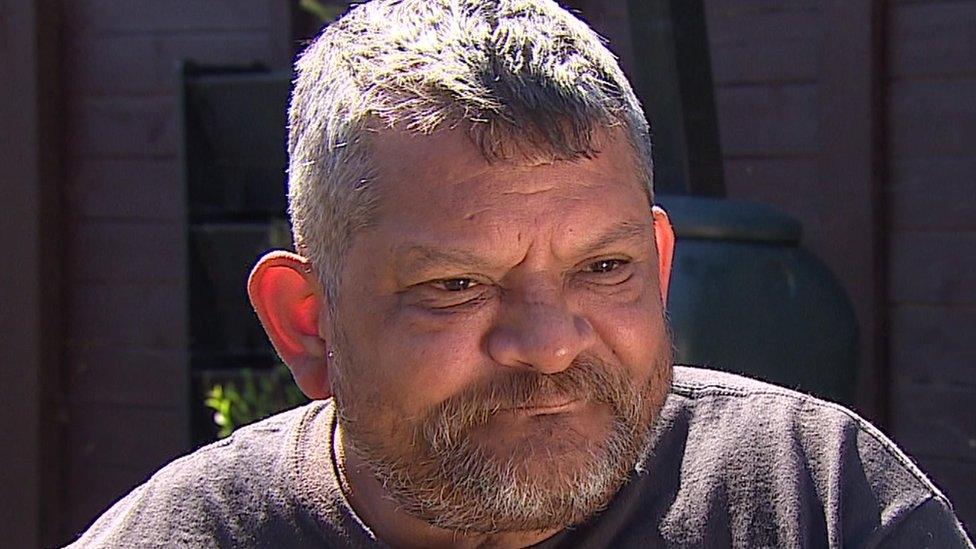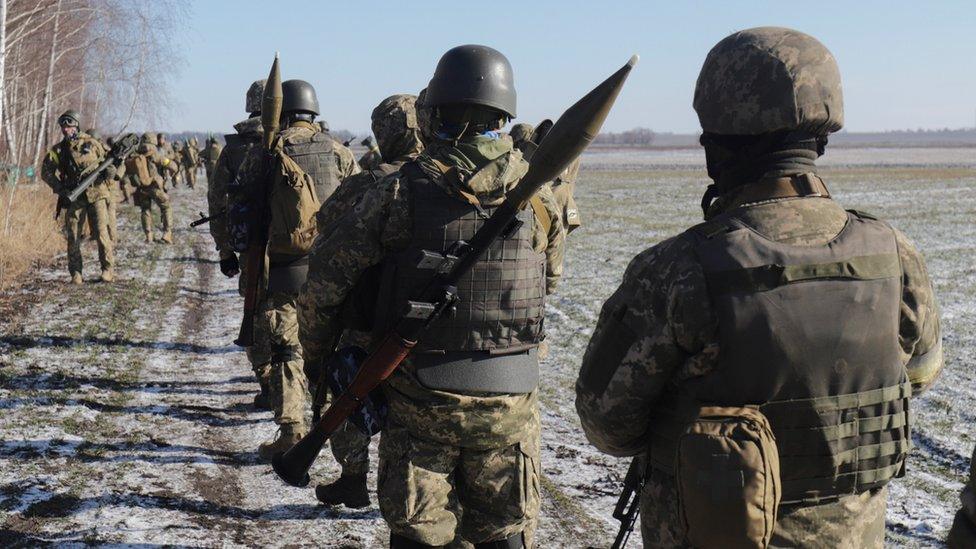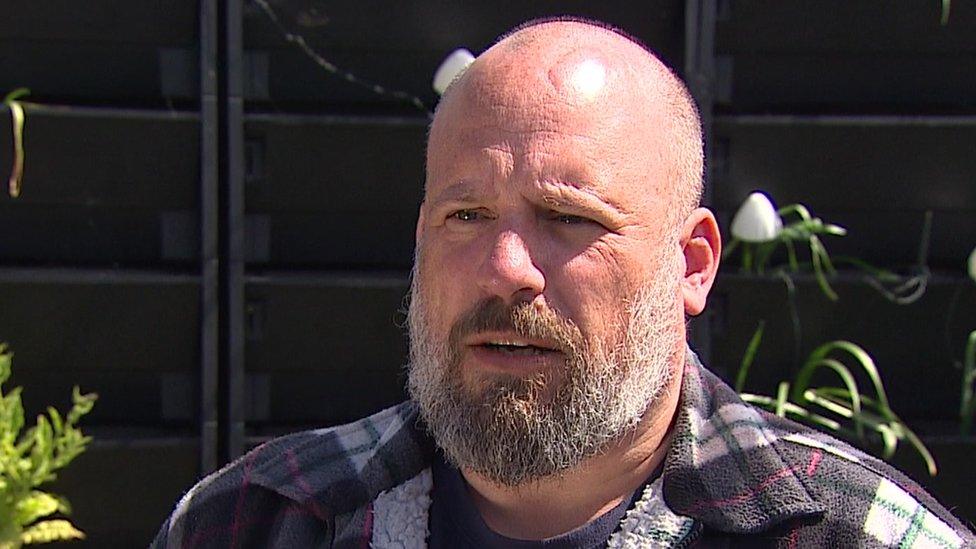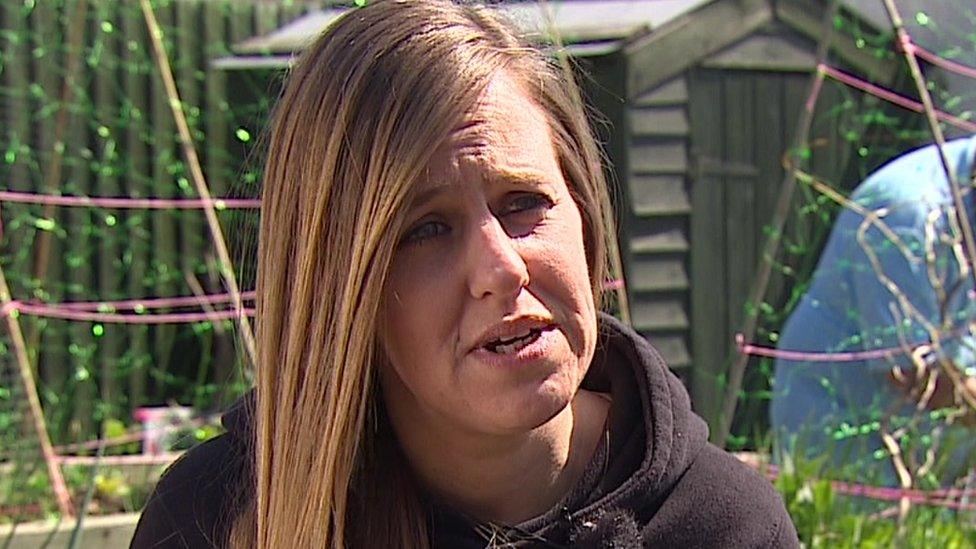Weymouth veterans' group warns Ukraine war is triggering PTSD
- Published

Pablo Williams suffers with PTSD after serving in Northern Ireland, the Gulf War, Bosnia, Iraq and Afghanistan
A veterans' support group has reported a rise in ex-military personnel seeking help for post-traumatic stress disorder (PTSD) since the war in Ukraine began.
The Veterans Hub in Weymouth, Dorset, said the increase in former servicemen and women suffering with mental health problems had been "dramatic".
Some veterans at the hub described avoiding the news because images of the conflict triggered traumatic memories.
The group urged anyone struggling with similar feelings to seek help.

Coverage of the war in Ukraine has resulted in PTSD symptoms being triggered in some veterans
Pablo Williams, who served in the Army for 20 years from 1986, told the BBC his PTSD often prevented him from feeling like he could leave the house.
"It's horrible - every time something like [the Ukraine war] comes on the news I turn it off because if I don't it just brings back horrible memories and then I end up with nightmares, and my wife has to sleep in another room because I'm kicking and punching," he said.
"I'm physically sick when I leave the house, I struggle to concentrate with things, I can't remember things - so it's really quite extreme."
He added that those in the military could feel conflicted between "not wanting to go on tour but not wanting to be left behind" and that if he was younger he would still want to travel to Ukraine to fight.

Andy Price, founder of the hub in Weymouth, said there has been a "dramatic" rise in veterans needing help
Andy Price, who founded the hub, said on some days his team had been "overwhelmed" by the number of veterans needing support and often had to signpost them to different services.
He added: "We're talking about guys who are seriously self-harming, guys that are just going off the radar, guys that are drinking too much, guys that are turning to substance misuse.
"Especially when you're rolling from Afghanistan to Ukraine there's been a massive increase in veterans out there really struggling with suicidal thoughts or just the thought of wanting to disappear."

Therapist Tara Coyles-Gould cited the war in Ukraine as a reason for her waiting list doubling
Tara Coyles-Gould, a director and therapist at the hub, said it took an average of 11 years for veterans to ask for the help they need.
"A lot of the issues that people are having are on a moral-based level - something called moral injury where they feel that all the hard work that's gone before in Afghanistan has been for nothing," she said.
"There were 457 British lives lost and they wonder what that was for. In terms of Ukraine it's more that they feel helpless - that they can't do something to help."
The hub helps veterans by hosting services such as a community allotment, gym, wellness rooms and drop-in advice clinics.

Follow BBC South on Facebook, external, Twitter, external, or Instagram, external. Send your story ideas to south.newsonline@bbc.co.uk, external.